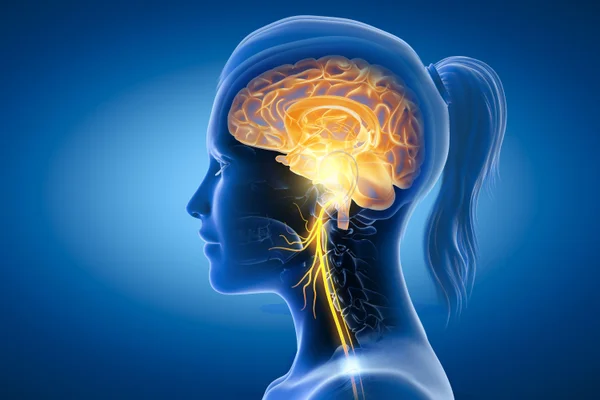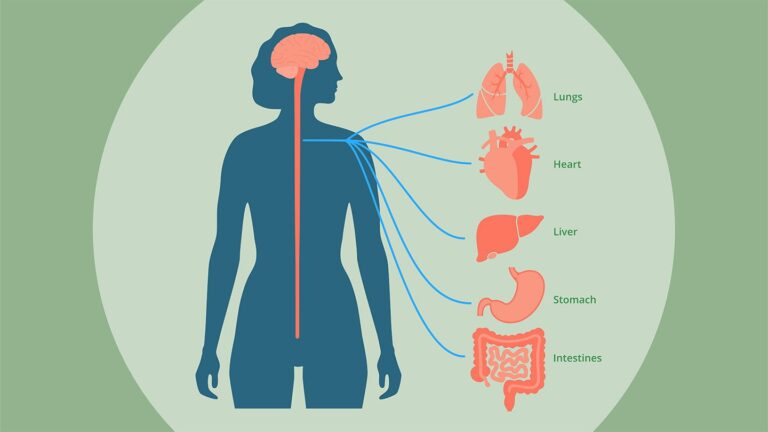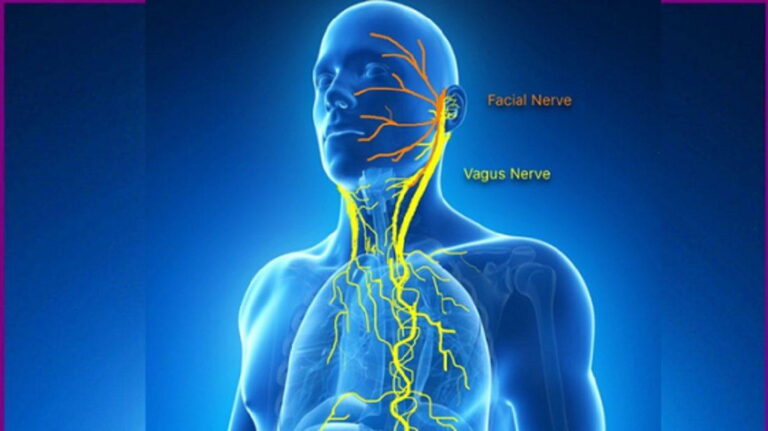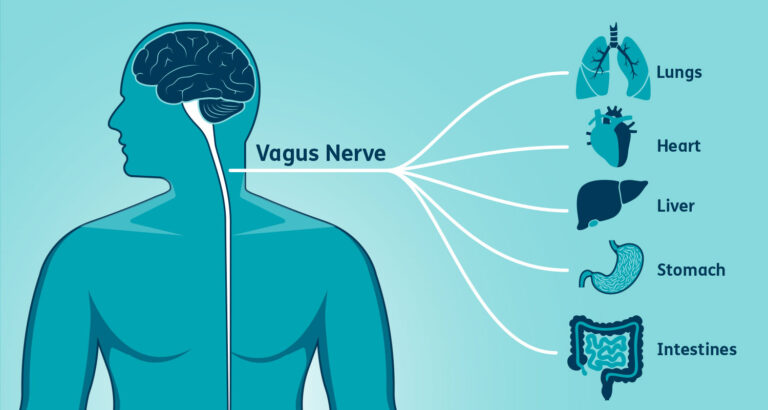Vagus Nerve and its Role in Irritable Bowel Syndrome (IBS)
Title: Navigating the Gut-Brain Connection: Vagus Nerve and its Role in Irritable Bowel Syndrome (IBS)
Introduction:
Irritable Bowel Syndrome (IBS) is a common gastrointestinal disorder characterized by a variety of symptoms, including abdominal pain, bloating, and changes in bowel habits. Recent research has uncovered a significant link between the vagus nerve and IBS, shedding light on the intricate interplay between the gut and the nervous system. In this article, we explore the role of the vagus nerve in IBS and how understanding this connection can pave the way for innovative approaches to managing this often-debilitating condition.
Understanding the Vagus Nerve and Its Role in Digestion:
The vagus nerve, the longest cranial nerve, plays a crucial role in the regulation of various bodily functions, including digestion. It serves as a communication highway between the brain and the gastrointestinal (GI) tract, influencing processes such as peristalsis, nutrient absorption, and gut motility. Its involvement in the gut-brain axis highlights its significance in maintaining gut health.
The Vagus Nerve and Irritable Bowel Syndrome:
- Vagal Tone and Gut Function:
Vagal tone, the activity level of the vagus nerve, is closely linked to gut function. In individuals with IBS, alterations in vagal tone have been observed, potentially contributing to the irregularities in bowel movements and visceral hypersensitivity characteristic of the condition. - Inflammation and the Vagus Nerve:
The vagus nerve is intricately involved in regulating inflammation. Dysregulation of this inflammatory response may contribute to the chronic low-grade inflammation observed in some individuals with IBS. - Stress and Vagus Nerve Dysfunction:
Stress is a known trigger for IBS symptoms, and the vagus nerve plays a role in the body’s stress response. Reduced vagal tone has been associated with heightened stress responses, potentially exacerbating IBS symptoms. - Vagus Nerve Stimulation as a Therapeutic Approach:
Research suggests that enhancing vagal tone through various interventions, such as deep breathing exercises, meditation, or biofeedback, may have a positive impact on IBS symptoms. Vagus nerve stimulation is being explored as a potential therapeutic avenue for managing IBS. - Microbiome Influence:
The gut microbiome, which plays a crucial role in digestive health, can influence the vagus nerve. Changes in the microbiome composition observed in IBS may contribute to vagus nerve dysfunction.
Management Strategies:
- Lifestyle Modifications:
Incorporating stress management techniques, such as mindfulness and relaxation exercises, can positively influence vagal tone and potentially alleviate IBS symptoms. - Dietary Changes:
Some individuals with IBS may benefit from dietary modifications, including a low-FODMAP diet, which has been shown to reduce symptoms. The gut-brain axis, including vagal nerve involvement, may play a role in these dietary sensitivities. - Biofeedback and Vagus Nerve Stimulation:
Biofeedback techniques and emerging therapies involving vagus nerve stimulation are under investigation as potential interventions for managing IBS symptoms.
Conclusion:
The evolving understanding of the intricate relationship between the vagus nerve and Irritable Bowel Syndrome opens new avenues for therapeutic interventions. While ongoing research continues to unravel the complexities of this connection, individuals with IBS can explore a holistic approach that incorporates lifestyle modifications, dietary changes, and emerging therapies that target the gut-brain axis. Consulting with healthcare professionals for personalized advice and treatment plans remains crucial in navigating the challenges posed by IBS. As science advances, the potential for innovative and effective strategies to manage IBS holds promise for improving the quality of life for those affected by this chronic gastrointestinal condition.






